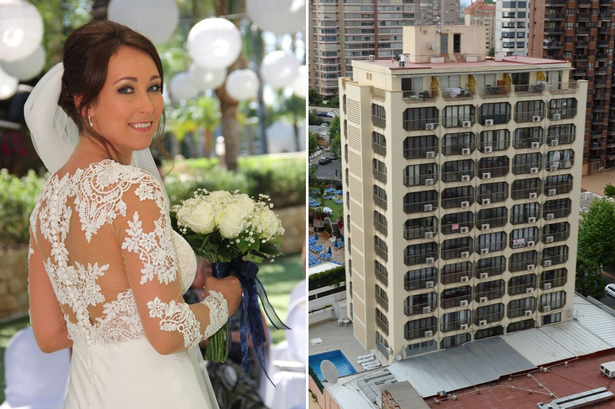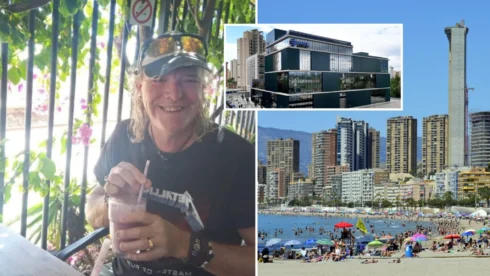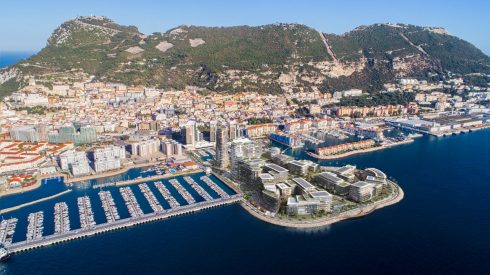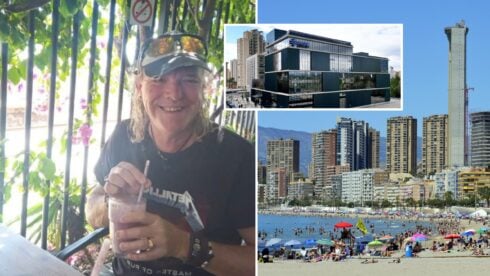KIRSTY Maxwell was just 27 when she plunged from a 10th floor balcony in Benidorm after a night out partying with her friends on the popular tourist strip. She was discovered lying beside the pool as the sun rose the next morning — April 27, 2017 — so peacefully still that at first no one realised the extent of the horror that had unfolded.
I remember Kirsty’s story well. I wrote about her death as a young trainee working at a national and the details always stuck with me. We were close in age, had grown up just a few towns apart and even shared the same first name.
Reporting on tragedy – the collision of absolute horror with absolutely ordinary daily life – is always upsetting, but it has a devastating potency when you can so easily identify with the victim.
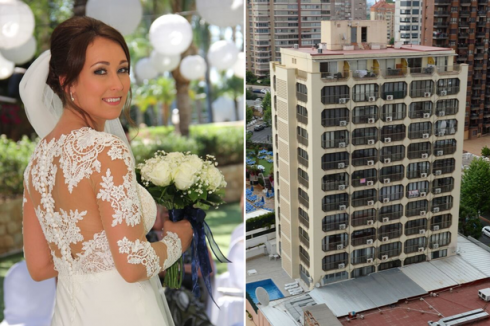
The initial facts upset all of us in the newsroom that day: a young woman, newly married and planning a family, had died while on a hen weekend abroad.Yet as more details of the case emerged it became clear this was no typical story – Kirsty had not fallen from her own room on the ninth floor, but from the tenth floor, in an apartment on the opposite side of the building occupied by five men from Nottingham. Friends and family had no clue what connection Kirsty had to the men or what prompted her to leave her own apartment, barefoot and without her mobile phone or purse, and climb up to the top floor in the early hours of that morning. What’s worse, they had no idea what happened inside the men’s room in the minutes leading up to her fall.
It’s those unanswered questions that lead me to investigate her death for a new documentary series on MTV, focusing on young people who had lost their lives in mysterious circumstances.
It was a crisp January morning when I drove eight hours in a shaky rental car from the Costa del Sol to meet the team, fixer Javier and my two cameramen Adrien and Victor in the boozy Brit capital of Spain. Due to COVID-19 restrictions the director, producers and MTV host Linda Adey were stuck in England and it was up to me and the Spanish team to find out as much as we possibly could in Benidorm, retracing Kirsty’s final steps and looping back to the team at home in the UK.
And investigate we did: hunting down the owner of the apartments where Kirsty died, speaking with the manager of a nearby hotel who held all the contact details of eyewitnesses from that fateful morning and knocking on the office doors of police detectives and judges.
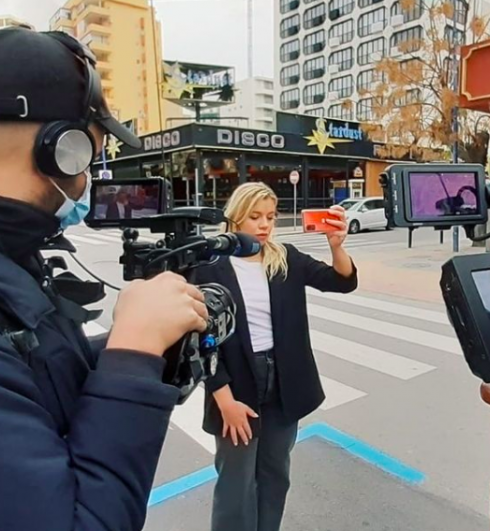
Benidorm itself was a ghost town. The mecca for bargain British summer holidays, the coastal city has long been considered Spain’s tourist hotspot brimming with bars and spine-chillingly high apartment blocks. “The Manhattan of Spain,” fixer Javier joked to me as I craned my neck to take it all in. But in January, with so few tourists in Spain, and a complete ban on pubs opening in the city, the party strip had come to a standstill.
Locked doors, shutters pulled tight and signs on the windows of restaurants and bars, clubs and takeaways alike — “Sorry we are closed due to Covid-19 restrictions” – the party was well and truly over, the streets silent with nothing but the sound of Union Jack flags flapping in the wind.
It almost felt appropriate that the streets felt haunted. Four years on no one has ever been charged with Kirsty’s killing. Last year, three Spanish judges in Alicante ruled that there is no ‘strong evidence’ of criminality surrounding the death and none of the five men staying inside the apartment at the time of Kirsty’s fall have ever been formally accused of any crime, despite the booze and unidentified white substances found in their room by police the next morning
There’s no doubt that Kirsty’s death has had such a grip on the collective consciousness in the UK for so many years, in part because she was a Brit abroad who had lost her life too young.
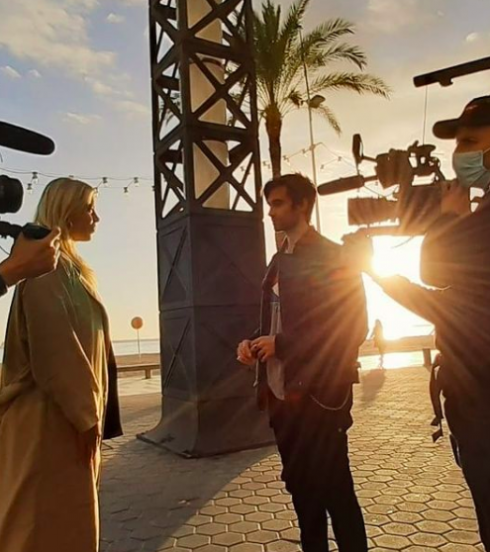
But what I found over the course of my investigation in Benidorm is that Kirsty’s age and nationality are potentially why the Spanish justice system failed her. It is possible to them she was just another drunk Brit abroad, her death all too easily filed away as an accident. The true mystery, we discover in the documentary, isn’t what happened in Kirsty’s final moments. It’s how the Spanish authorities were able to treat her case with a carelessness that bordered on contempt.
As for the theories buzzing round true crime forums, the more I investigated, the less they made sense. It’s almost impossible to imagine that Kirsty was suicidal or sleepwalking as some Reddit threads suggest. Her father said that she was ‘happy and full of life’ and ‘never slept walked in her life’ – and after looking up at the terrifying height of the Palma apartments, I am convinced not even an adrenaline junkie would attempt to try ‘balconing’ from the tenth floor. Certainly not Kirsty, who friends say was scared of heights.
Indeed, up until the last hour of her life, all of Kirsty’s actions made sense. Going away with friends for a hen party, the accommodation had been carefully picked: My Pretty Payma, self catering apartments with a pool, a two minutes walk away from the hustle and bustle of the main party strip. Nearly 20 girls flew out for the hen weekend, wearing matching pink t-shirts and looking forward to the blue of the pool, the whiteness of the beach, the pure joy of heading out with friends into a warm evening of laughter, drinks and dancing. She acted like any of us would have.
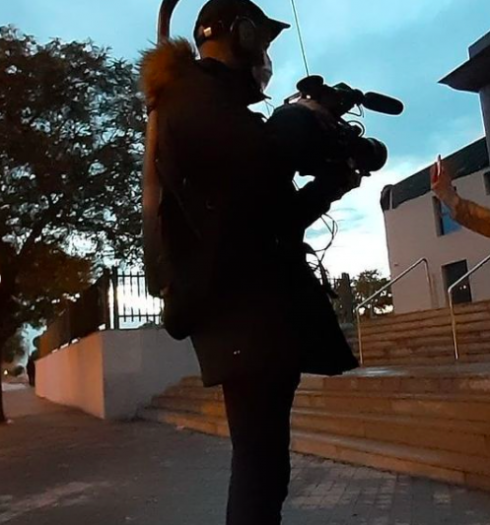
What we still don’t know is what led her to leave her bedroom, less than an hour after friends captured a video of her peacefully snoring in bed.
I wonder now, in retrospect, whether the crazy theories, the tabloid outrage, the accusations of drinking too much, the smug ‘Why was she in a room with five men’ — stemmed from blind fear, from needing to erect a clear barrier between people who travel abroad and the people that end up losing their lives. But the truth is, Kirsty was exactly like us, exactly like anyone on holiday. Optimistic, carefree. Full of life.
The only barrier that exists now, for the family, for the private investigators and for journalists like me, seems to be the Spanish authorities. Over the course of the documentary we uncovered some truly horrifying truth about the missteps made by the police – and yet any attempt to get the cops or court system to explain their errors was met with hostility or silence. I hope pressure for the documentary will change that.
We need justice for Kirsty’s family. We need to make sure that when a foreigner dies abroad, the case is always treated with respect, sympathy and above all, without wrongdoing. What happened to Kirsty could happen to us, and that is terrifying.
– True Life Crime UK is available on MTV on demand
READ MORE
Click here to read more Benidorm News from The Olive Press.

